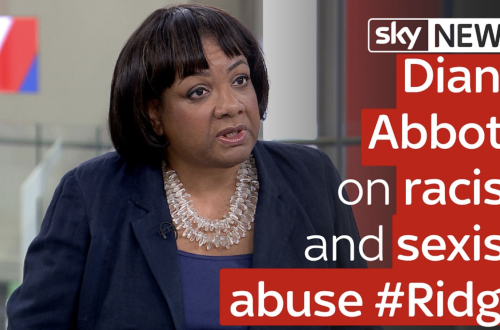This is a cross-post from Politics ad Infinitum by Tom Owolade
This is Goldsmiths university student union welfare and diversity officer, Bahar Mustafa, explaining why she can’t be racist:
I, an ethnic minority woman, cannot be racist or sexist to white men because racism and sexism describe structures of privilege based on race and gender.
Therefore, women of colour and minority genders cannot be racist or sexist, since we do not stand to benefit from such a system. For our actions to have been deemed racist or sexist, the current system would have been that enabled only women and people of colour to benefit economically or socially on such a large scale and to the systematic exclusion of white men, who for the past 400 years would have had to be subjected to colonisation..
To be racist is to be powerful. Racism is racial prejudice married with power. This definition of racism – nourished in Liberation groups, circulated by social justice activists – is underpinned by post-colonial thinking: white people are structurally privileged above people of colour as a result of Western colonisation of the Third world. Consequently, only white people can be racist.
This conception of racism is myopic because power is crudely defined as being white; to be white is to be powerful and therefore to be racist is to be white. This definition doesn’t account for the racial prejudice married with power undertaken by non-white people. The Hutus fomented hatred of the Tutsis by routinely reinforcing that they were superior to them. This led to genocide. In Zimbabwe, Robert Mugabe continues to persecute the white minority. This has led to expulsion and landgrabs. Between the 8th and the 20th century, Arabs owned roughly around 20 million black slaves, on the basis that they were inferior by virtue of their cultural identity. Are some slave trades more equal than others?
A more sophisticated reading of the prejudice + power doctrine is to emphasise that it only applies in a British/Western context. When Mustafa and Liberation activists say people of colour can’t be racist, they mean people of colour can’t be racist in western societies. This is because the power dynamic in these societies clearly favours white people. This reading makes context crucial in determining what constitutes racism. What is unclear from this, however, is whether Jews, Roma and Irish – all victims of discrimination and hostility because of their identity – qualify as people of colour. If they do qualify as people of colour, then “white” people would have to be the literal descendants of white protestants, and only they can be racist because their ancestors directly facilitated the transatlantic slave trade. One would have to demonstrate that a person’s ancestors were exempt from persecution and oppression for them to be capable of racism. This would make the accusation of racism ridiculously strenuous to prove. (Hello sir or madam, can you, err, tell me if any of your ancestors were persecuted or oppressed in the past before I decide whether your racially prejudiced comment was racist?). If Jews, Roma and Irish people are not considered people of colour, however, then Black and Arab people can express anti-Jewish or anti-Roma sentiments unencumbered by the possibility of being labelled racist. With anti-Semitism on the rise, predominantly from some Muslim communities, is this conception of racism really such a wise move? Would it not be more coherent, not to say productive, to define racism as it has always been traditionally understood: Animus, manifested physically or verbally, to a group of people because of their cultural identity or characteristics.
Moreover, power as a concept doesn’t sufficiently account for racism. Economically or politically powerless people, relatively speaking, can still demonise another group on the basis of their racial and cultural characteristics. Israel is economically and militarily more powerful than Hamas, yet the terror group circulates and produces virulently anti-Semitic material, indoctrinated into the population, with their raison d’etre being the pinnacle of racism: genocide. It is clearly the case, therefore, that ‘power’ is neither a necessary nor sufficient condition for racism. What distinguishes racism is hatred against a group of people on the assumption that they’re inferior or demonically powerful. If power was essential to racism, Dieudonne M’bala M’bala, comedian-cum-fascist, would casually declare that he is just being anti-establishment. In fact, anti-Semitism itself, from the Protocols of the elders of Zion to modern day conspiracies about Israel’s control in Washington, is grounded on the perception that Jews are more powerful than anyone else. If racism is powerful people expressing prejudice to the powerless, you offer justification for the oldest hatred in our civilisation and legitimise all its lurid conspiracies. This may partly explain why the modern radical Left at the lower end glosses over anti-Semitism and at the higher end actively nourishes it.
Racism is the demonisation of a group on the assumption that they’re innately inferior or innately omnipotent, both of which point to a group being existentially threatening. A lack of relative power does not preclude any individual from assuming superiority or reckoning any group of people threaten by secretive power. What precludes a person from being racist is not being racist – that is, not passing value judgements on racial and cultural identity, emphasising our common humanity above all else, and being respectful unless a person’s behaviour and beliefs necessitates otherwise. The post-colonial definition of racism does the exact opposite of all three.


